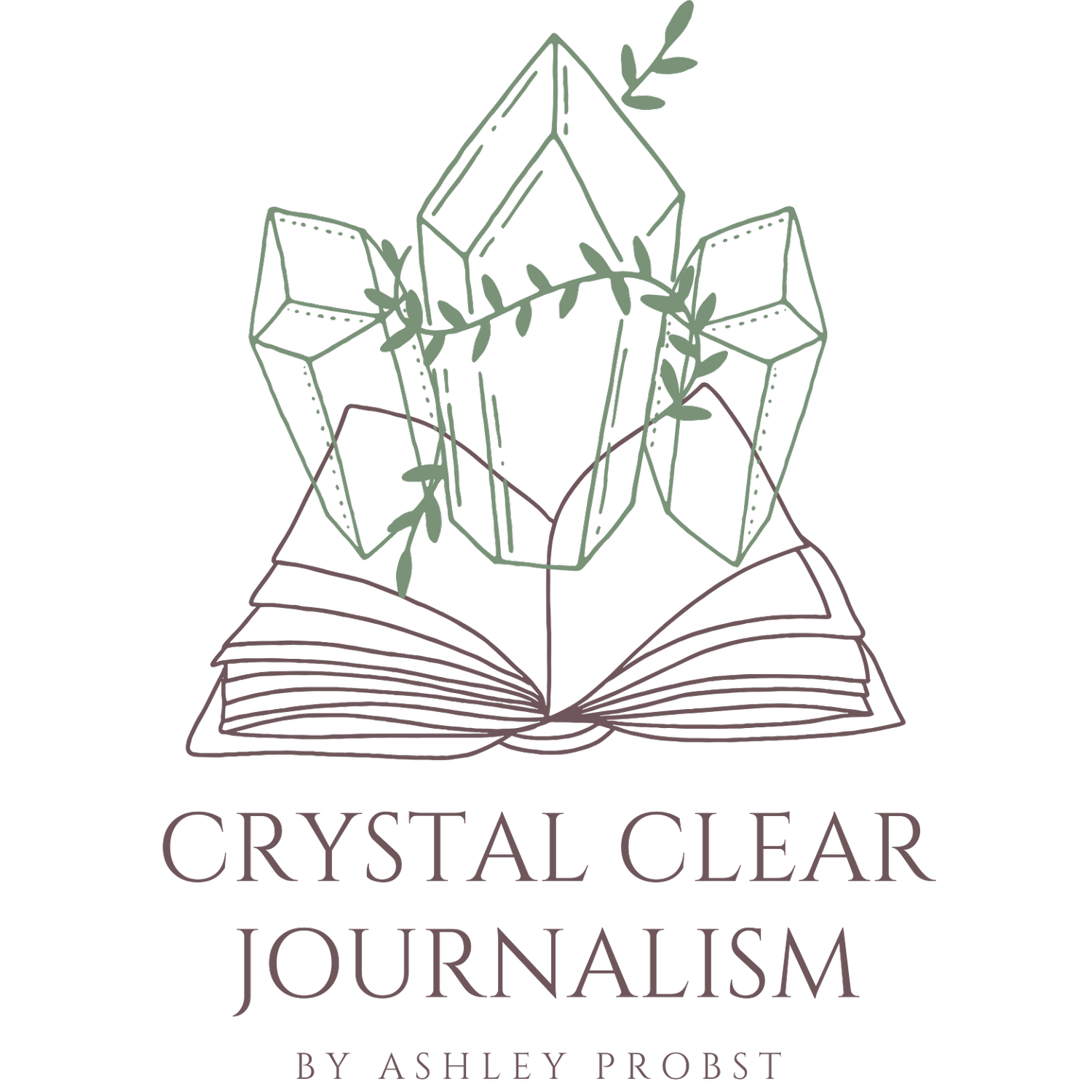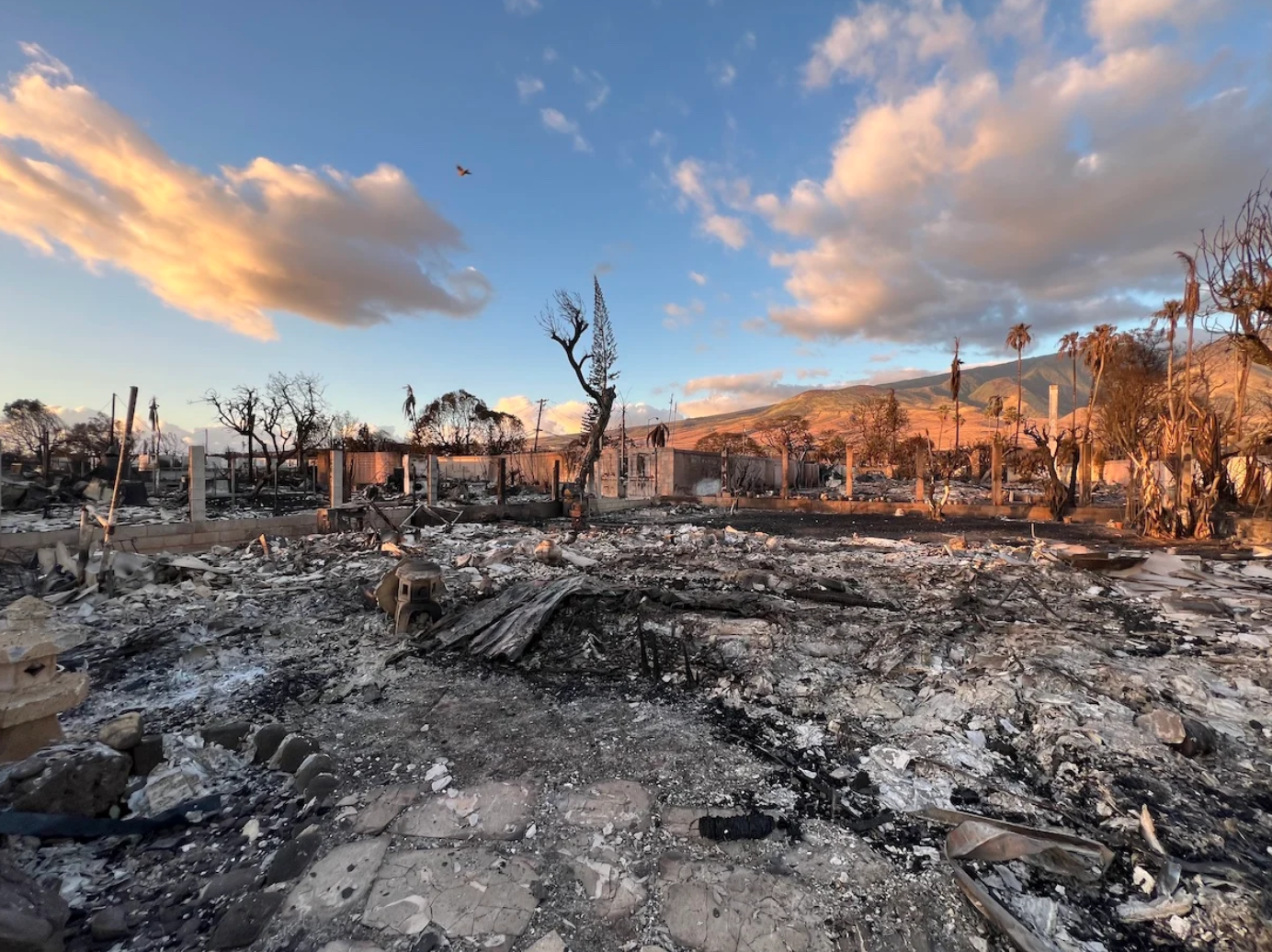A Year in the Ashes: A Reflection on the Maui Wildfires
One resident’s journey through loss and resilience after the Lahaina fire—in her own words.
What started as a normal day on Aug. 8, 2023, ended with me helplessly watching as the island where I was born and raised was consumed by a fiery hellscape. The next morning, all of Maui awoke to discover the horrifying reality that our beloved, historic Lahaina Town was gone.
The days that followed were shrouded in fear, uncertainty, and the heart-wrenching realization of all that was lost. Time slowed down, and the first few weeks after the fire felt like months.
I began to grieve the loss of my hometown, my childhood home where I lived for nearly 20 years, all the sentimental items left behind, two cats we never managed to find, my family’s business at the Banyan Inn Marketplace and the adjacent apartments, and multiple locations where I conducted my own entrepreneurial pursuits.
The remains of the author’s family home in Lahaina.
Three days after the fire, I returned to Lahaina for the first time. My mission was two-fold: deliver insulin to a resident living on the edge of the burn zone and satisfy the urgent need to see what was left of my family home. I hoped to save any valuables that may have survived and keep them out of the hands of alleged looters.
The first item I recovered from our property was a worry stone carved with the word “faith.” It promptly broke in half, serving as a tangible representation of my morale.
I would return to sift through the ash of my former home three more times, but by the last visit, I had come to terms with the sobering fact that anything worth salvaging had already been recovered. The only things of value that remained amongst the rubble were some crystals, melted metal that was once my jewelry, and all my memories from this precious place.
The author in front of her childhood home in Lahaina before the fires consumed it.
Three weeks after the fire, I was deeply moved by the outpouring of support from loved ones and strangers alike. A GoFundMe that I set up for my family gathered donations from nearly 400 benefactors. People all over the world shared our story, encouraging awareness and monetary support from those who could give. Clients booked sessions to support my tarot reading business. My social media followers, most of whom I’ve never met, sent gift boxes filled with generous donations. Friends opened their homes to us, providing a safe space to heal and figure out what came next.
Mental health advocates advised fire survivors to turn off the news and focus on their well-being, but that wasn’t an option for me. As the editor of the MauiTimes newspaper, my job required me to read every press release, attend every press conference, and continuously write articles to help keep my community informed.
Looking back, I’m astounded that I was able to compartmentalize my heartbreak in order to fulfill my duty as a local journalist. I was determined to be a voice for my people and share our perspective amidst international coverage—a news cycle that, as we all predicted, moved on from our story much sooner than we’d hoped.
Maui Maui Richard Bissen addresses the public soon after the Lahaina fires last year.
In a bittersweet turn of events, this challenge was short lived. On Oct. 1, I received a call from my employer, informing me that the periodical I had been pouring what was left of my heart into would be shutting down. Our main revenue came from advertisements and we had effectively lost more than 50% of our clientele in the fire, making it virtually impossible to continue operations. I signed my termination paperwork the next day.
Three months after the fire, I had moved from a room in Wailuku and was settled into a friend’s spare room in Kula, where I still reside today. I’m one of the fortunate ones, as many displaced residents have had to move numerous times, and some are still searching for long-term housing.
Applying for aid from local and federal organizations became a focal point, and it felt like a full-time job.
The American Red Cross, Maui United Way, and the Global Empowerment Movement distributed one-time payments for financial support. The former also offered me a hotel room at the Westin Maui Resort & Spa, Kāʻanapali, which I declined since most of my work was now based in Central and Upcountry Maui.
The People’s Fund of Maui, though controversial, provided the only ongoing financial aid, directly depositing $1,200 a month through February. In March, the Maui Economic Opportunity expanded its Temporary Assistance for Needy Families program to help individuals affected by the fire.
Like many others, I struggled to receive aid from FEMA, which required a substantial amount of paperwork, phone calls, and in-person meetings. I resubmitted the same documentation multiple times, had the same conversation with various representatives, and received different answers each time. My application was denied, but I kept appealing the decision until I was finally deemed eligible for benefits in January. I received one payment for personal property loss and initial rental assistance in April.
Unfortunately, I still don’t qualify for continued rental assistance from FEMA, or any other organization, because I’m not on the lease for my current housing. Despite consistently paying rent since September, my friend’s landlord didn’t feel comfortable adding me to the lease because I was seeking financial aid.
Donations at the Lahaina Gateway Resource Hub after the fires last year.
One year later, it feels like everything has changed yet too much has remained the same.
As my time in the Kula home comes to an end this November, I find myself at a crossroads. Like many other Lahaina residents, I’m grappling with the difficult decision of whether to stay on Maui despite the immense financial burden.
The record-high costs for both renters and aspiring homeowners have led to a housing crisis—an issue already prevalent and now further exacerbated by the sudden need for thousands of long-term accommodations. This has forced me to consider alternatives like moving to Oʻahu or embarking on a new journey abroad.
On a whim, I applied and was approved for a working holiday visa in New Zealand. The prospect of immersing myself in Maori culture and exploring new landscapes offers a glimmer of hope and a chance to find a new sense of home.
Amidst these decisions, there is a poignant symbol of hope and renewal: The land where my childhood home once stood has been cleared of debris, creating a blank canvas for a new foundation. This physical transformation mirrors my own journey; a space left open for new beginnings.
A banana tree growing at the author’s former home in Lahaina—a sign of hope.
Reflecting on the past year, I’ve realized that my journey is not just about rebuilding what was lost but also about redefining who I am in the wake of such profound change. I have learned to embrace the uncertainty and see it as an opportunity for growth rather than a burden. The pain of losing my hometown and the obstacles I’ve faced are part of my story, but they do not define me. Instead, they have taught me resilience and have driven me to seek out new possibilities.
In this next chapter of my life, I’m focused on reframing the identity loss I’ve experienced and seizing the chance to reinvent myself—like a phoenix rising from the ashes.








